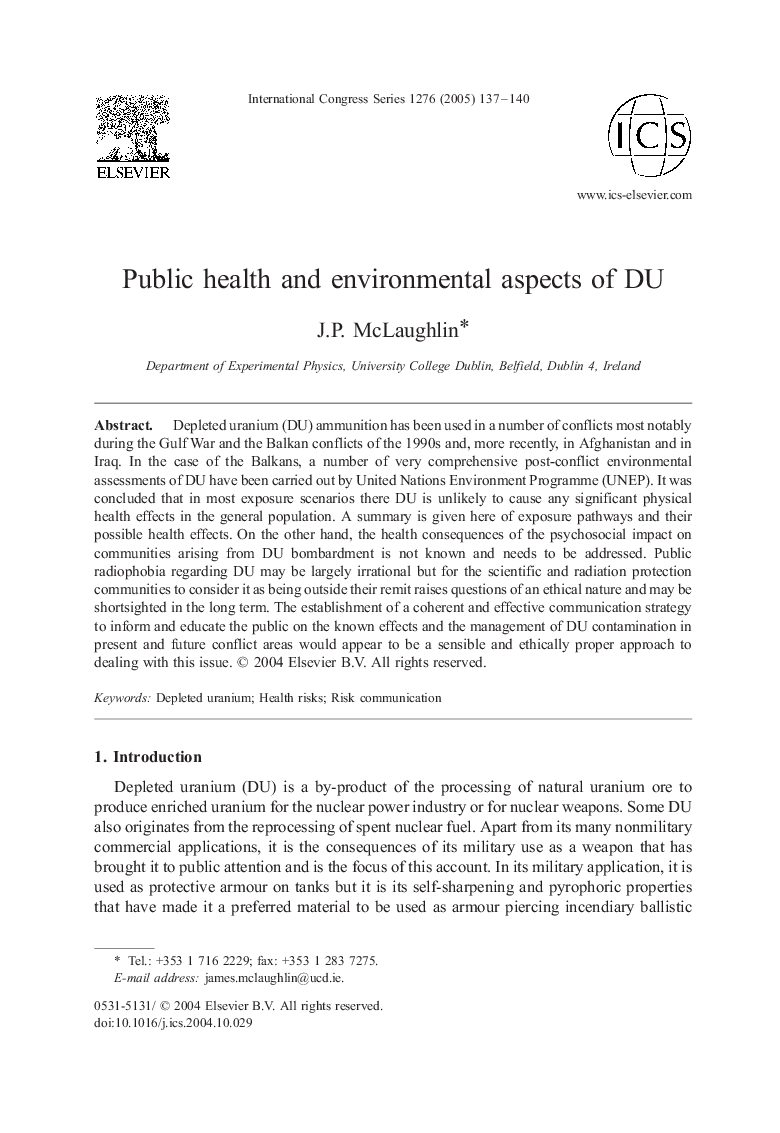| Article ID | Journal | Published Year | Pages | File Type |
|---|---|---|---|---|
| 9021604 | International Congress Series | 2005 | 4 Pages |
Abstract
Depleted uranium (DU) ammunition has been used in a number of conflicts most notably during the Gulf War and the Balkan conflicts of the 1990s and, more recently, in Afghanistan and in Iraq. In the case of the Balkans, a number of very comprehensive post-conflict environmental assessments of DU have been carried out by United Nations Environment Programme (UNEP). It was concluded that in most exposure scenarios there DU is unlikely to cause any significant physical health effects in the general population. A summary is given here of exposure pathways and their possible health effects. On the other hand, the health consequences of the psychosocial impact on communities arising from DU bombardment is not known and needs to be addressed. Public radiophobia regarding DU may be largely irrational but for the scientific and radiation protection communities to consider it as being outside their remit raises questions of an ethical nature and may be shortsighted in the long term. The establishment of a coherent and effective communication strategy to inform and educate the public on the known effects and the management of DU contamination in present and future conflict areas would appear to be a sensible and ethically proper approach to dealing with this issue.
Related Topics
Life Sciences
Biochemistry, Genetics and Molecular Biology
Molecular Biology
Authors
J.P. McLaughlin,
